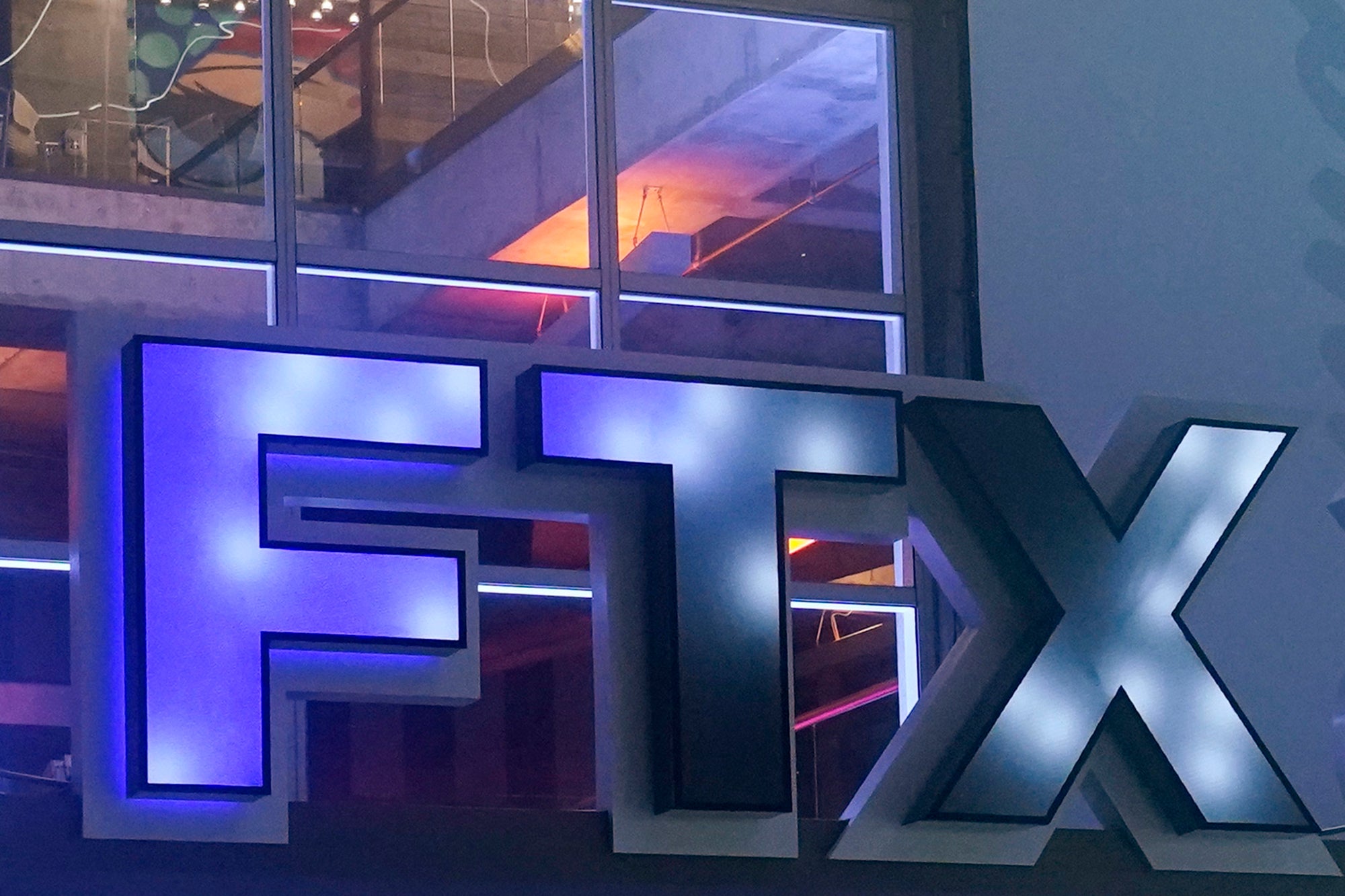Judge in FTX bankruptcy rejects media challenge, says customer names can remain secret
A Delaware bankruptcy judge says the names of individual customers of collapsed cryptocurrency exchange FTX Trading can be permanently shielded from public disclosure

Your support helps us to tell the story
From reproductive rights to climate change to Big Tech, The Independent is on the ground when the story is developing. Whether it's investigating the financials of Elon Musk's pro-Trump PAC or producing our latest documentary, 'The A Word', which shines a light on the American women fighting for reproductive rights, we know how important it is to parse out the facts from the messaging.
At such a critical moment in US history, we need reporters on the ground. Your donation allows us to keep sending journalists to speak to both sides of the story.
The Independent is trusted by Americans across the entire political spectrum. And unlike many other quality news outlets, we choose not to lock Americans out of our reporting and analysis with paywalls. We believe quality journalism should be available to everyone, paid for by those who can afford it.
Your support makes all the difference.The names of individual customers of collapsed cryptocurrency exchange FTX Trading can be permanently shielded from public disclosure, a Delaware bankruptcy judge ruled Friday.
Following a two-day hearing, Judge John Dorsey rejected arguments from lawyers for several media outlets and for the U.S. bankruptcy trustee, which serves as a government watchdog in Chapter 11 reorganization cases, challenging FTX's request to keep the names of customers and creditors secret.
Dorsey ruled that customer identities constitute a trade secret. He also said FTX customers need to be protected from bad actors who might target them by scouring the internet and the “dark web” for their personal information.
“It’s the customers that are the most important issue here,” he said. “I want to make sure that they are protected and they don’t fall victim to any types of scams that might be happening out there.”
Katie Townsend, an attorney for the media outlets, had argued that the press and the public have a “compelling and legitimate interest” in knowing the names of those affected by the stunning collapse of FTX.
“That collapse sent shock waves not just through the cryptocurrency industry, but the entire financial industry,” Townsend said. “And at this point, we don’t even know where the shock waves, both individually and institutionally, have hit the hardest, and what institutions may have the largest, or no, exposure as a result.”
But lawyers for FTX and its official committee of unsecured creditors argued that its customer list is both a valuable asset and confidential commercial information. They contend that secrecy is needed to protect FTX customers from theft and potential scams, and to ensure that potential competitors do not “poach” FTX customers. FTX believes its customer list could prove valuable as part of any sale of assets, or as part of a reorganization.
“The debtors are in a position to realize value from these customer lists,” said FTX attorney Brian Glueckstein.
FTX entered bankruptcy in November when the global exchange ran out of money after the equivalent of a bank run. Founder Sam Bankman-Fried has pleaded not guilty to charges that he cheated investors and looted customer deposits to make lavish real estate purchases, campaign contributions to politicians, and risky trades at Alameda Research, his cryptocurrency hedge fund trading firm. Three former FTX executives have pleaded guilty to fraud charges and are cooperating with investigators.
In January, Dorsey ruled that FTX could redact the names of all customers, and the addresses and email addresses of non-individual customers, from court filings for 90 days. He also authorized FTX to permanently keep secret the addresses and email addresses of individual creditors and equity holders.
On Friday, the judge approved the permanent sealing of individual customer names and extended the secrecy regarding the names of institutional customers for another 90 days.
Dorsey refused, however, to continue to allow FTX to shield the names of individual creditors or equity holders who are citizens of the United Kingdom or European Union nations and covered under a consumer protection program known as the General Data Protection Regulation, or GDPR. FTX sought similar treatment for individuals covered under Japanese data privacy laws.
Dorsey said that, in response to an objection from the U.S. trustee, FTX had presented no evidence to show that those foreign individuals might be harmed, or that FTX might be sanctioned, if their names are disclosed.
Dorsey also rejected a request by attorneys for an ad hoc committee of non-U.S. customers to keep the names of its members secret. If the committee wants to participate in the case, then the names of its members must be disclosed, he said.
According to redacted court filings, the ad hoc committee currently has 35 members, with estimated economic interests in FTX ranging from $64,434 to $1.5 billion. Dorsey noted that some members may decide to drop out based on his ruling.